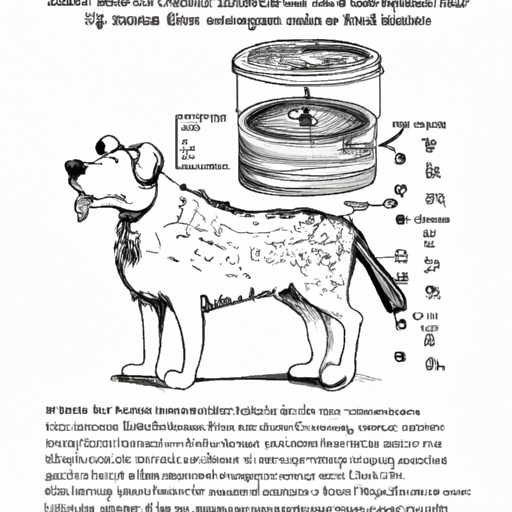Understanding Canine Digestion
You, as a dedicated caregiver, know that the food ingestion process in your furry friend is not a simple in-and-out operation. It’s a complex procedure that starts the moment the food enters your dog’s mouth and ends with excretion. In between, the food undergoes various transformations, facilitated by enzymes and other digestive juices.
The Journey of Food: Step by Step
Let’s dive deeper into the journey of the food once your dog gulps it down.
-
The Mouth: It all begins in the mouth. Unlike humans, dogs don’t take time to chew their food thoroughly. Their saliva, however, does contain enzymes that start breaking down the food.
-
The Esophagus: The food then travels down the esophagus, a muscular tube that pushes the food into the stomach.
-
The Stomach: Once in the stomach, the food mixes with gastric juices, including hydrochloric acid and digestive enzymes, which further break down the food.
-
The Small Intestine: The partially digested food then moves into the small intestine where it is broken down further by enzymes from the pancreas and bile from the liver.
-
The Large Intestine: Finally, the undigested food, now mostly fiber and water, moves into the large intestine, where water is absorbed, and the remaining material is excreted.
A Matter of Time: How Long Does It Take?
On average, it takes about 4 to 5 hours for food to move from the stomach to the small intestine. The total digestion time, from eating to excretion, however, varies between dogs. It can take anywhere from 10 to 24 hours.
Here’s a rough guideline:
| Stages of Digestion | Time Taken |
|---|---|
| Stomach | 4-5 hours |
| Small Intestine | 4-5 hours |
| Large Intestine | 10-24 hours |
Factors Affecting Digestion Speed
Several factors can influence how quickly your dog digests food:
- Age: Younger dogs tend to digest faster than older ones.
- Diet: Foods rich in fiber and protein take longer to digest compared to those high in fats and sugars.
- Health: Health issues like gastrointestinal problems can slow down the digestion process.
Frequently Asked Questions
1. How can I tell if my dog is having digestion problems?
If your dog is vomiting, has diarrhea, loss of appetite, or is passing gas more than normal, it could indicate a digestion problem.
2. Does the type of food affect digestion speed?
Yes, the type of food can impact how quickly it is digested. For instance, wet food is typically digested faster than dry food.
3. How often should I feed my dog?
It varies depending on your dog’s size, age, and health. However, most dogs are fed twice a day.
4. Can I help my dog digest food faster?
Regular exercise can help stimulate your dog’s digestive system and promote faster digestion.
5. What if my dog eats too quickly?
Eating too quickly can lead to several health issues, including choking, gagging, and a serious condition called bloat. Try using slow feeder bowls or puzzle toys to slow down your dog’s eating pace.



